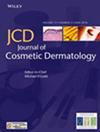ALKBH5 Inhibits YTHDF2-m6A-Mediated Degradation of RCN1 mRNA to Promote Keloid Formation by Activating IRE1α-XBP1-Mediated ER Stress
Abstract
Background
Reticulocalbin 1 (RCN1) was reported to be upregulated in keloid, but its molecular mechanism remains unclear. The aim of this study is to investigate the role of RCN1 in keloid.
Methods
The expression of RCN1 was detected in keloid tissues. Keloid fibroblasts were transfected with RCN1 overexpression vector. Cell viability, collagen production, apoptosis, and cell invasion were measured. Then, the m6A modification level of RCN1 mRNA was detected by methylated RNA immunoprecipitation (MeRIP), and the effect of overexpression of ALKB homolog5 (ALKBH5) on the m6A modification level of RCN1 mRNA was evaluated. Subsequently, the relationship between RCN1 and XBP1 was verified by co-immunoprecipitation (Co-IP) assay. pcDNA-RCN1 and XBP1 shRNA were transfected into keloid fibroblasts to for reversal experiments, and changes in the endoplasmic reticulum (ER) structure of keloid fibroblasts were observed by transmission electron microscopy (TEM). Finally, we established a mouse keloid model and injected mice with the RCN1 shRNA lentiviral vectors to monitor the keloid formation in mice.
Results
RCN1 was highly expressed in keloid tissues and keloid fibroblasts. Overexpression of RCN1 significantly increased keloid fibroblast viability, collagen production, and invasion, but inhibited cell apoptosis. ALKBH5 upregulated RCN1 expression by reducing m6A-YTHDF2-mediated degradation of RCN1 mRNA, and RCN1 knockdown reversed the promoting effect of ALKBH5 overexpression on cell viability collagen production and invasion, and the inhibitory effect of ALKBH5 overexpression on apoptosis in keloid fibroblasts. Moreover, overexpression of RCN1 significantly upregulated the protein levels of XBP1, GRP78, and IRE1α, and promoted ER stress in keloid fibroblasts, but this change was eliminated by sh-XBP1 intervention. In vivo experiments showed that knockdown of RCN1 significantly inhibited keloid formation by alleviating cell apoptosis and ER stress in mice.
Conclusion
Our data revealed that RCN1 was upregulated by ALKBH5 to promote keloid formation by activating IRE1α-XBP1-mediated ER stress, RCN1 may be a potential biomarker for treatment of keloid.


 求助内容:
求助内容: 应助结果提醒方式:
应助结果提醒方式:


